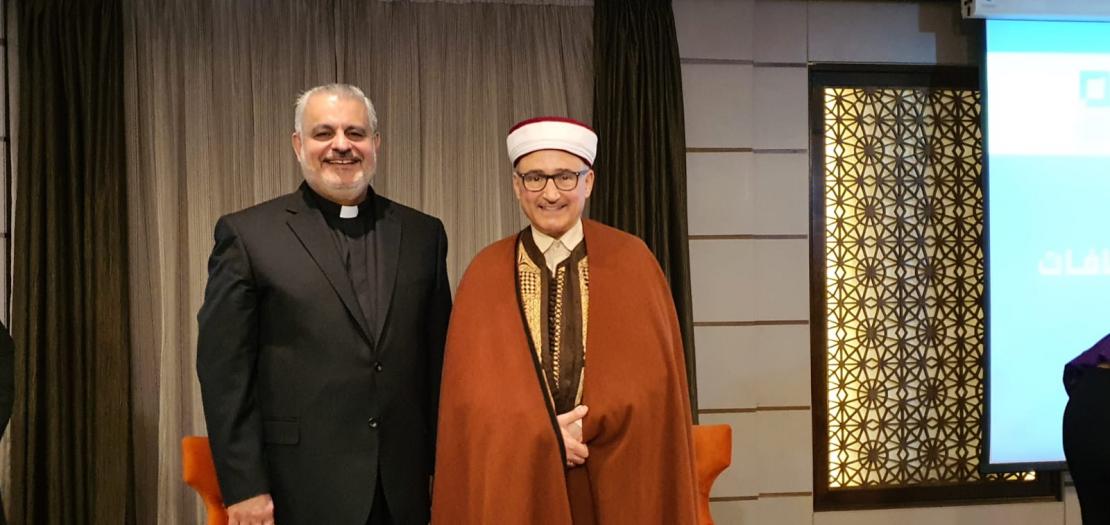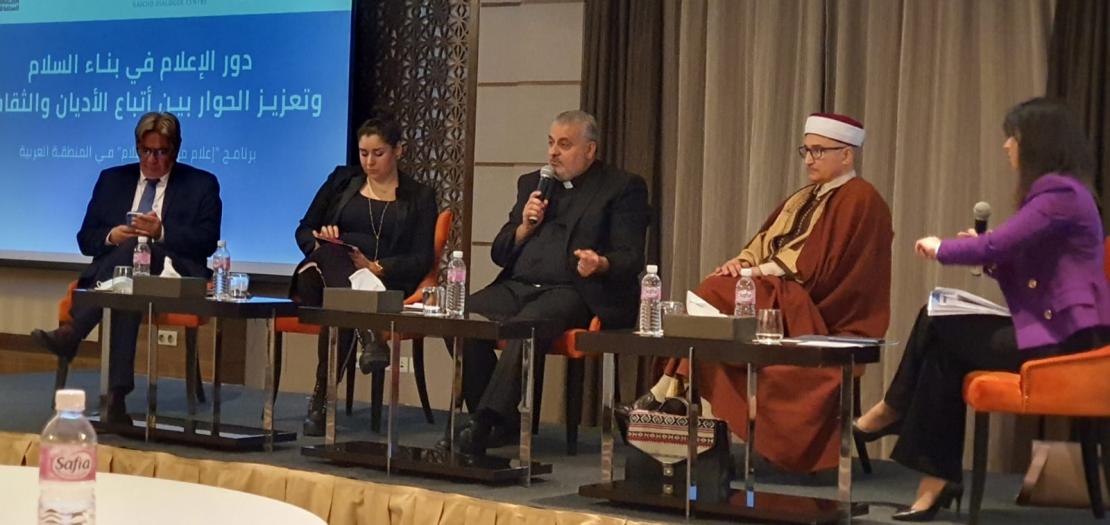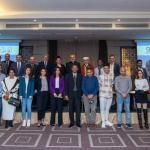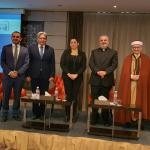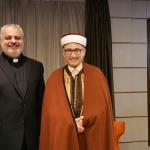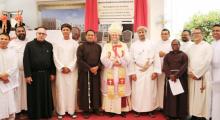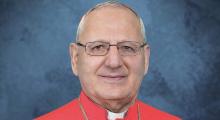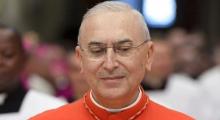Issued by the Catholic Center for Studies and Media - Jordan. Editor-in-chief Fr. Rif'at Bader - موقع أبونا abouna.org
The King Abdullah Ibn Abdulaziz International Centre for Interreligious and Intercultural Dialogue (KAICIID) has held its first "physical" workshop, since the onset of the Corona pandemic in Tunis, titled "The Fellowship Program of Youth, Journalism for Peace and Dialogue."
At the outset of the sessions, Mr. Wasim Haddad, the official in charge of the Arab functionaries, expressed pleasure for the gradual restoration of "physical" meetings which KAICIID and its dialogue platform had sought to convene on regular bases in Arab countries and at its headquarters in Austria.
At the outset of the workshop, a panel discussion was held among others and titled, "The Role of Media in Building Peace and in Strengthening Dialogue among Followers of Religions and Cultures". The seminar was moderated by Maya Sukkar from Lebanon, and was attended by media people, religious leaders, and experts in the field of enhancing dialogue and peace journalism in the Arab region including Director of the Catholic Center for Studies and Media (CCSM) in Jordan Fr. Dr. Rif'at Bader; Political analyst and researcher in the affairs of "extremist'' groups Mr. Basil Turjuman, IFM Executive Director Ms Sabrin Qobantini, Professor of Hadith and Director of the Higher Institute of Sharia Sheikh Dr. Afif Sababti.
The session dealt with the role of media in its capacity as one of the basic and essential forces for any comprehensive and integrated plan to build peace, to enhance social cohesion in the Arab region, and to entrench the importance of journalism of dialogue in building a new concept based on evading unilateral reporting that dominates the modern media scene, as well as considering the common good of societies as the crux of media reporting.
For his part, Fr. Bader said that the modern media outlets serve as an angel that represents the power of goodness, beauty and peace, as well as a demon that represents the forces of bullying, abuse, rumors and false news. He praised the training and educational initiatives held for young journalists that ensure the domination of goodness over the forces of evil and the demonization of media. He referred to the CCSM's experience, which was established 25 years ago and was reorganized 10 years ago, which acts in the field of media in the service of humanity, and serves as a model from the beloved Jordan that provides ethical use of media for the service of humans and humanity, as well as for stimulating the "culture" of encounter, dialogue and peace.
Fr. Bader continued that the CCSM holds two or three workshops annually for university students focusing on the proper use of media. He stressed that young journalists should abolish the saying, "we have advanced technically and receded morally'', and thus replace it by “we have advanced both morally and technically." He urged the Arab press to seize the current opportunity, in the post-Corona virus era, to focus on interfaith dialogue and media institutions in order to identify the dilemmas facing humanity such as health, climate, poverty and unemployment by trying to find common solutions to them.
Over the four-day sessions, panel discussions and training sessions were held focusing on means to promote resolution of conflicts through adopting constructive media, as well as means to counter bullying, extremism and hate speech through numerous social media sites and platforms.




